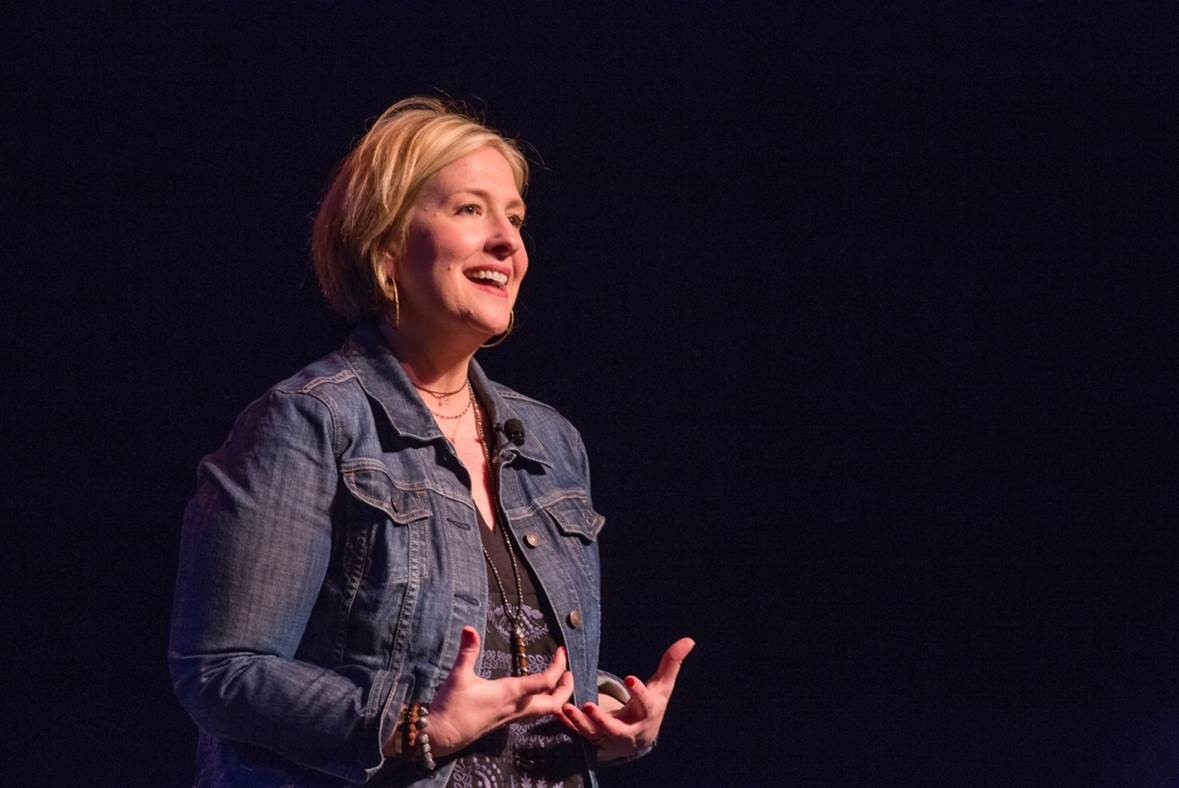
Vanderbilt’s new [IM]Perfection Project—a joint initiative of the Margaret Cuninggim Women’s Center and the Office of Wellness Programs & Alcohol Education designed to address mental health issues around the fear of failure—brought the perfect speaker to campus in February to help launch the effort: best-selling author and researcher Brené Brown.
In more than a decade of work at the University of Houston, Brown has consistently found that a quest for perfection feeds one’s shame and, in turn, depression, addiction and eating disorders. To combat this harmful cycle, we must learn to embrace our failure and vulnerabilities, she says. Her message has struck a nerve: Brown’s 2010 TEDx Houston talk, “The Power of Vulnerability,” is one of the top five most popular TED talks in the world, with more than 25 million views.
“We think that if we are perfect, we can avoid shame, blame and judgement. Perfectionism does not equal excellence,” she told a capacity crowd at her Valentine’s Day appearance at Vanderbilt. “We have to stop comparing our lives to the Photoshopped lives we see on Facebook and Instagram. If you work to avoid failure, you’re only going to do what you’re good at. You are engineering smallness into your life.”
But don’t mistake vulnerability for weakness, Brown says. She believes vulnerability, which she describes as “showing up when you have no control over the outcome,” takes courage.
The popular speaker and author of best-sellers Rising Strong, Daring Greatly, and The Gifts of Imperfection draws strength from Teddy Roosevelt’s 1910 “Citizenship in a Republic” speech: “It is not the critic who counts; not the man who points out how the strong man stumbles, or where the doer of deeds could have done them better. The credit belongs to the man who is actually in the arena, whose face is marred by dust and sweat and blood; who strives valiantly; who errs, who comes short again and again … and who at the worst, if he fails, at least fails while daring greatly, so that his place shall never be with those cold and timid souls who neither know victory nor defeat.”
Or, as Brown summarizes the sentiment for a 21st-century audience: “If you live a brave life, you’re going to get your ass kicked. But don’t listen to the critics who aren’t in the arena. Find out for yourself what’s worth doing, even if you fail.”
—JAN READ